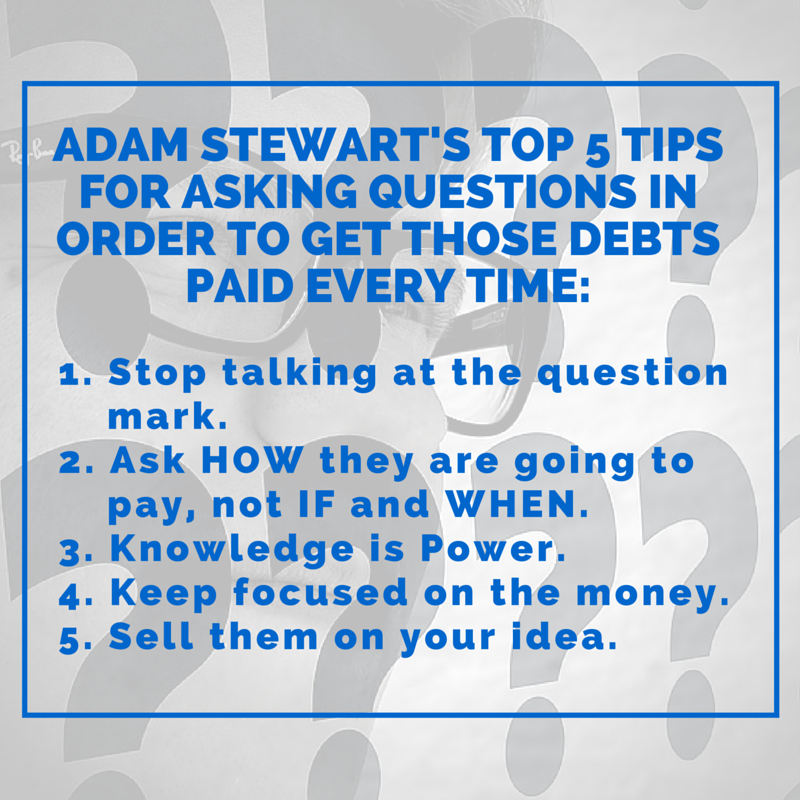How To Ask Questions and Negotiate with Your Debtors: Five Simple Tips on How to Ask Questions to Get Your Money Paid
Hi, my name is Adam Stewart, Debt Collection Expert and owner of Debt Recoveries Australia.
Asking questions is one of my favourite and most successful techniques in either finding out exactly what a client wants, or getting a promise to pay from a debtor. I find that by listening, then asking the right questions, leads to less resistance, more focus on the specific goal and a higher chance of getting paid.
So here are my 5 top tips for asking questions in order to get those debts paid every time:
1. Stop talking at the question mark. Start with a simple, results-focused question, then stop as soon as you have asked the question and actively listen for the answer. Stopping your question when you get to the question mark is the opposite of rambling or asking a multiple-choice question.
Too often, we are trying to show our knowledge or cover up our lack of knowledge with extended questions. By simply focusing on this one technique of stopping at the question mark, you will start asking better questions.
2. Ask HOW they are going to pay, not IF and WHEN. If you want to get paid, picture in your mind that the debtor is actually going to pay. Now, it is just a matter of how they are going to pay it. Ask your questions with the belief that the debtor is definitely going to pay and it is your job simply to work out the logistics of getting the debt paid.
All too often, the parties in the negotiation focus on positions and not on what they want to accomplish. Whether it is an acquisition, investment, intellectual property license, or debt collection, when you are stuck on positions, you are not likely to complete a deal. Focus on the money already being paid and ask questions accordingly.
3. Knowledge is Power. This is especially true in negotiations and dispute resolution. Both sides know it and may intentionally attempt to limit the knowledge you gain or mislead to get an advantage. You typically only get a limited amount of time and number of questions to ask. The amount of knowledge you gain will be directly tied to how well you ask questions. Preparation is an extremely valuable part of the process.
I try to learn as much as I can before I go to a negotiation session or do a debt collection call. This way I can focus my questions on the areas where I have limited insight or knowledge and fill in the gaps so I can devise a strategy to achieve success.
4. Keep focused on the money. Try and get conversations back on track by asking questions that are results-focused, rather than drifting off topic. Try and get conversations back on track by asking questions specifically about the debt and keep the debtor focussed on how they are going to pay.
5. Sell them on your idea. We all know that a great way to get buy-in to something is for the person to think it is their idea. A series of questions can get someone to see things from your perspective or arrive at the solution you desire. You do not need to ask leading questions, just well-designed objective questions. You will get better ideas and less resistance.
Follow up with comments and questions that are more objective until their answers point to your desired result. Suddenly, it is their idea. While this approach seems to take longer and require more effort, questions help you avoid defensiveness and resistance and often this is the fastest way to your desired result.
Call me at 1300 799 511 or email me at email@debtrecoveries.com.au if you want any further help or tips. You may also Skype me at debtrecoveries.
 Debt Recoveries Australia
Debt Recoveries Australia
